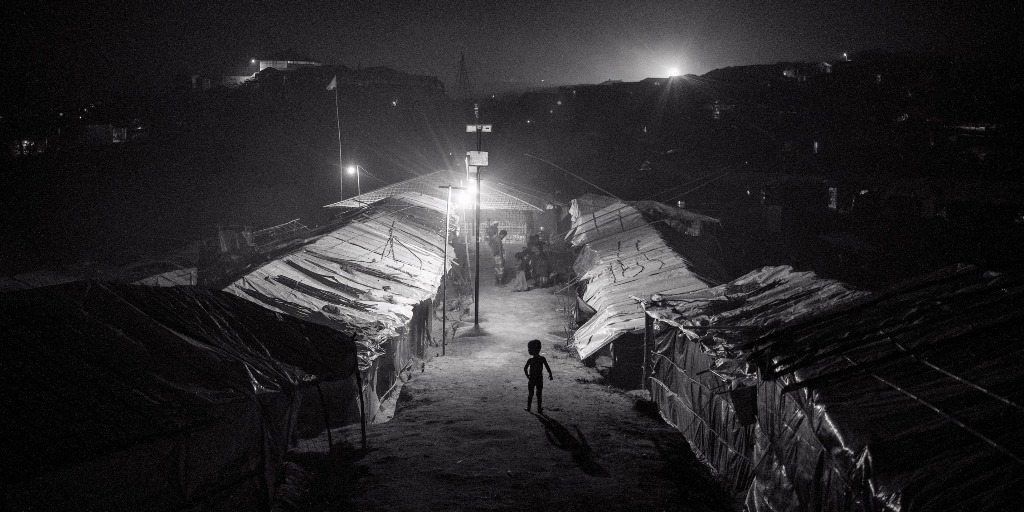
Are Bangladesh and Myanmar poised to make progress to address the refugee crisis involving hundreds of thousands of ethnic Rohingya?
Maybe.
The two countries signed an agreement to repatriate hundreds of thousands of Rohingya who have fled their homes in Myanmar’s Rakhine State after the latest wave of violence that began in August.
The agreement doesn’t offer many details, but here are some highlights, according to CNN and the Myanmar Times:
- The Myanmar government will impose no restrictions on the number of Rohingya allowed to return across the border, “so long as they can establish bona fide evidence of their residence in Myanmar.”
- There will be no legal consequences for Rohingya refugees who decide to return – unless they have been involved with terrorists.
- Myanmar says it will “take all possible measures to see that the returnees will not be settled in temporary places for a long period of time.”
Nancy Lindborg, president of the U.S. Institute of Peace, just visited Rakhine State and believes this could be a positive first step toward a larger solution. “It’s a good thing to have an agreement between two governments that signals a possible way forward,” she told The Cipher Brief Monday.
However, some critical stakeholders were not involved in the agreement reached by Bangladesh and Myanmar. “Unfortunately, they didn’t involve the UN agency, UNHCR [UN High Commissioner for Refugees], which would be a critical partner in its implementation, and they also – to my knowledge – didn’t involve any of the Rohingya leadership,” Lindborg said.
Extremism and the Rohingya
With international Islamic terror groups extending their influence to local conflicts throughout Southeast Asia and Africa, there is much concern that the persecuted Rohingya, a Muslim minority in a majority-Buddhist state, will be next.
The current wave of violence in Rakhine State was precipitated by attacks on Myanmar police outposts by an insurgent group calling itself the Arakan Rohingya Salvation Army (ARSA). Its ties to international terrorist groups are unclear, but reports by the Myanmar army suggest ARSA’s members were poorly armed during their assault on local police, using “homemade guns, sticks, swords, and spears.”
Lindborg expressed surprise—given the conditions—that more Rohingya hadn’t turned to violence.
“When I was in Sittwe [the capital of Rakhine State] a few weeks ago, I visited a Rohingya camp of displaced Rohingya outside of Sittwe, and they have been in that camp for five years unable to leave it…their children are not allowed to go to school past the tenth grade.”
“So you have a population that is sitting inside wire barriers with such hopelessness and lack of any possibility for a future…it’s a bit surprising they haven’t turned to violence.”
Local Politics and Grievance
Lindborg told The Cipher Brief she met with state officials and local Rakhine leaders who did not express sympathy or acceptance toward the Rohingya population.
“They made it clear that they felt the Rohingya should be sent away, stuffed onto an island in the Pacific, maybe.”
Even if Myanmar and Bangladesh move forward with plans to repatriate and grant citizenship to the Rohingya refugees—of which they have been slowly stripped over the past few decades—the attitudes of locals in the Rakhine State will prove a difficult obstacle to long-term peace and stability.
“The grievance of the Rakhine population has historically been with the majority government in Naypyidaw,” Lindborg said. “They’re being a little bit played against each other—the Rakhine and the Rohingya—by a central government.”
The full interview with Nancy Lindborg, president of USIP, will be available on tomorrow morning’s episode of The Cipher Brief Daily Podcast.
Brian Garrett-Glaser is content manager for The Cipher Brief. Follow him on Twitter @bgarrettglaser.
